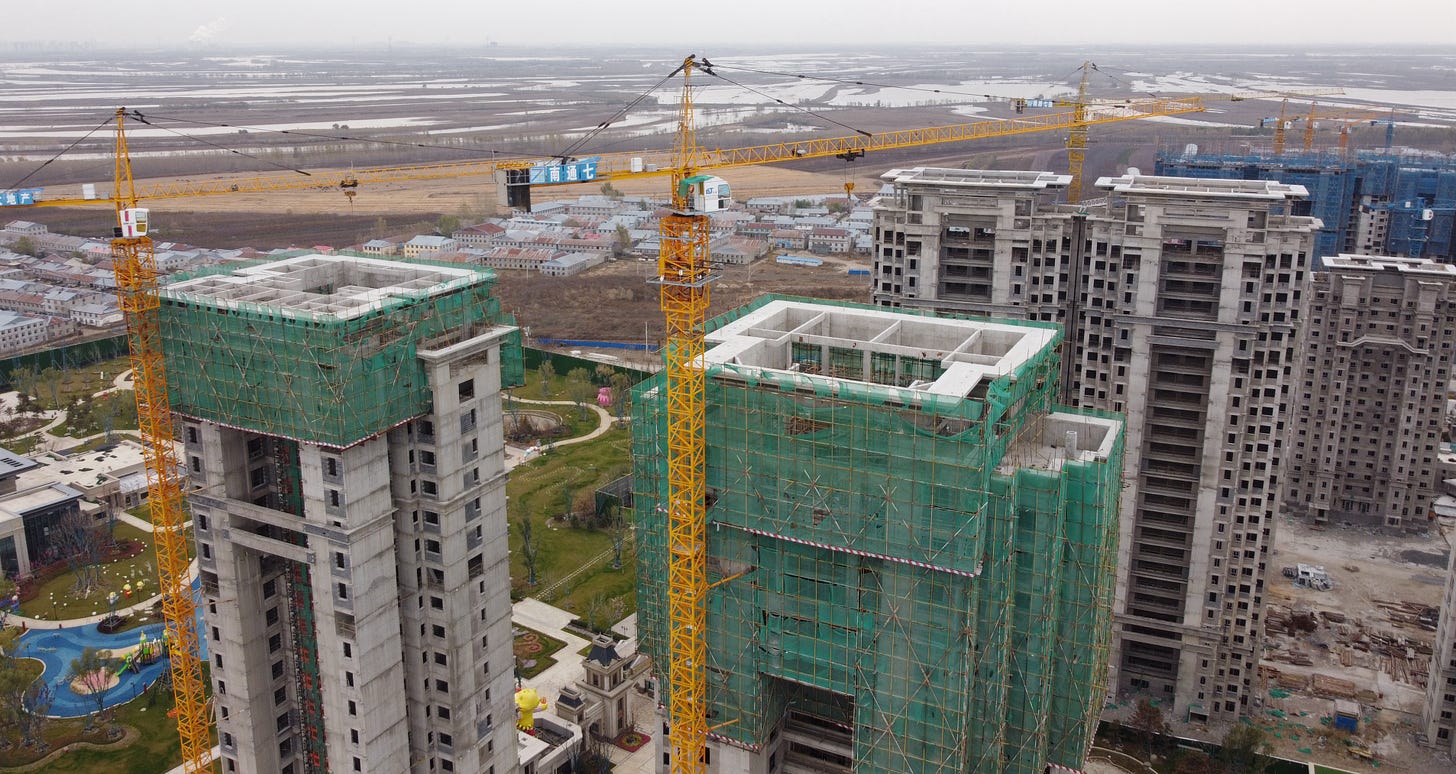The Other Global Chaos Shoe to Drop: China
We are in for a recurrence of 2020 problems, plus our 2022 problems. I talk with Chinese economy expert Patrick Chovanec about COVID lockdowns, asset bubbles, and a fraught partnership with Russia.
Dear readers,
It’s a bizarre time right now in the economy. Growth is high, and it’s a very good time to find a job. Businesses are flush with customers and they want to hire and expand. And the ongoing post-emergency renormalization from COVID continues to fuel this trend.
But there is also economic peril. Inflation is high. To fight it, central banks around the world will raise interest rates, cooling business enthusiasm and consumer spending in the process. The war in Ukraine is fueling more inflation, severing international trade links and straining global markets in energy and agricultural products — at a time when global supply chains are already strained.
And then there’s China.
Even before COVID, China’s economy was troubled. Decades of robust economic growth and increased integration into the world economy have sometimes obscured the important ways in which the country remains communist. State direction of business investment has led to widespread misallocation of capital. This is most visible in the form of vast and empty apartment developments fueled by a bubble among Chinese retail investors with few options about where to put their money.

The Chinese government has had to intervene repeatedly to prevent bank and business failures, staving off a financial crisis but creating even more incentive for Chinese businesses to build and buy the wrong things. And there’s been risk that this whole system could crash down into an unprecedented economic recession, destroying middle-class Chinese wealth and damaging the economies of China’s trading partners in the process.
For this week’s Very Serious podcast, I invited Patrick Chovanec to discuss China’s economic situation — how resurgent COVID and the war in Ukraine exacerbate China’s economic troubles, and how those troubles may affect our economic and geopolitical position. Patrick is an adviser who has spent decades helping foreign investors and companies do business in China; he’s also taught at both Columbia and Tsinghua University. And he described to me how China and its trading partners are about to face some very 2020 and very 2022 problems at the same time.
In winter 2020, before people had fully grasped the global nature of the destruction that was coming from COVID, investors were focused on some very China-specific economic concerns: that widespread lockdowns in China would hamper economic activity and global trade, creating shortages of basic materials and product components for which the world relies on China. Then, China got its outbreaks under control in a way that many other countries (including ours) did not. That specific crisis was averted.
But now, COVID is roaring through Hong Kong and threatening to do the same in mainland China. Even if the mainland Chinese government is able to continue stamping out outbreaks, it is going to do so at the price of increased economic disruption. And unlike in 2020, that threat to the flow of Chinese goods comes in an environment of already existing global shortages and inflation. The risks are extensive, to China and also to us.
What to do about [gestures broadly] all this is a hard question for both China’s leaders and ours — even before you get to the question of how the Ukraine war might affect the way China looks at Taiwan. I learned from my conversation with Patrick, and I hope you will, too.
Very seriously,
Josh




Josh,
Great show and brilliant editorial decision to do a China foreign policy episode. When everything is focused on Ukraine, it was a breath of fresh air to be focused on something else (even with Ukraine tie ins).
Great show—Patrick is a wealth of knowledge. And, as I learned following him on Twitter, he has the additional quality of being a decent and honorable human being.